╳

Get The Latest On Our Greatest
Subscribe to Our Company/Product Updates

Friday, March 16, 2018
Some of the earliest and happiest memories of my life were formed in an English garden. The look and feel of the finial-topped wrought iron pickets, set in the midst of rhododendrons, camellias, and boxwood hedges, is burnished deep into my mind. It was in that garden, reading books on design and architecture, that I was ultimately inspired to work as a designer and builder.
The spaces we shape truly have the power to shape us, whether it's a city, a house, or a garden. And sometimes the tiniest details, like the finials of a fence or the weight of a material, are able to turn a very ordinary space into something extraordinary.
If you’re looking for decorative garden fence ideas, black wrought iron or wrought iron-style fencing is my first choice to add elegance and charm to a garden. In the past, some homeowners may have shied away from iron fencing because it could be difficult to install and maintain, but that is no longer the case. Today, there are enhanced wrought iron fences on the market that are highly weather resistant, easy to maintain, and easy to install. Here’s what to look for in an enhanced wrought iron fence, and why choose this material for your garden.
What makes black wrought iron-style fencing attractive? Questions of aesthetics are invariably subjective, but for me, the heaviness and durability of the material create a continuity with tradition and the past. A wrought iron-style fence brings formality and a touch of elegant order to the fluid and variegated space of a garden. The look of black iron is classic, commonly associated with Victorian England, and it never goes out of style. There is a simplicity in the lines of an iron fence that lends itself both to modernist spaces, and (especially with added decorative elements) to classical and Victorian design schemes.
Another aesthetic benefit of enhanced wrought iron fencing is its perceived weight. As a designer, I've learned that people are affected by the weight and solidity of a material, even if they haven't touched it, and even if they haven't consciously noted it. Using a fencing material that looks and feels solid and well-made can produce feelings of comfort, security, and stability, allowing those within to unwind and breathe easy.
One of the most important considerations in the design of a garden project is the quality of light that's desired for the space. If privacy is not a huge consideration in a garden space, a picket-style fence will allow more sun into the garden area than a solid wooden or vinyl fence. A metal picket and rail fence is able to deliver a sense of protection, while at the same time creating a feeling of openness, allowing light, air, and small wildlife to freely pass between the pickets and rails. If deer and rabbits aren't a serious issue, this style of fence is an excellent replacement for less attractive garden fencing systems, such as wood and chicken wire.
Some of the loveliest aspects of wrought iron fences are the decorative elements, especially the finials on top of the posts and pickets. Some fencing systems come in only one style, while fencing from other manufacturers are more customizable, allowing for greater flexibility in the design process. Decorative finials can transform a fence from a purely functional barrier into an elegant and integral part of your garden, a frame that complements your yard and your home. Some manufacturers also make other kinds of decorative additions for a basic wrought iron-style fence, such as a decorative top panel with scrolls or rings, 'knuckles' to fancy up individual pickets, or post accessories.
Even if aesthetics are your primary concern when it comes to choosing a fencing material for your garden, durability should still be a consideration in order to make the most of your investment. While old-fashioned wrought iron had a reputation for being prone to corrosion, modern enhanced wrought iron, much closer to modern steel than the classical wrought iron that was used to build the Eiffel Tower, and galvanized steel are some of the most durable materials with which to construct a fence.
The main area of concern, for both of these materials, is susceptibility to rust and corrosion. Not all galvanized steel products are created equal, so it's fairly important to pick out a fencing material that is solidly protected from the elements. Galvanization, when steel is dipped in zinc, and zinc powder paint coatings will help protect the material, but some manufacturers also use special shields and corrosion-resistant methods like e-coating as well, which can be well worth the investment. Additionally, in my experience, systems with less exposed hardware (screws and bolts) will generally produce fewer maintenance problems, as well as offering an aesthetically-pleasing, streamlined quality.
During my career, I've had the good fortune to create the same kind of contemplative spaces, ringed with elegant enhanced wrought iron fencing, that fired my young imagination. I always choose the best possible materials for the job, which in this case means a fence that offers durability and design flexibility. I've found that Fortress Fence Products offers a range of enhanced wrought iron fencing for both residential and commercial products that are aesthetically pleasing, incredibly durable, and light on maintenance due to their special corrosion-resistant shield application. It's an innovative product, of a quality you don't find every day. For other building project needs, check out more innovative decking, railing, and hardware at Fortress Building Products.
Search